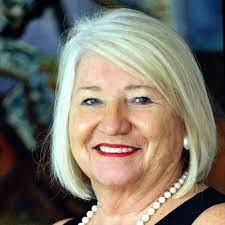
2 minute read
Anemia among non-pregnant women of reproductive age
Barriers and facilitators of micronutrient supplementation among non-pregnant women of reproductive age in Johannesburg, South Africa
Dr Takana Silubonde

A study by Dr Silubonde et al. (2022) examined perceptions and beliefs of multiple micronutrient supplementation (MMS) in the prevention and treatment of anemia among non-pregnant women of reproductive age as well as facilitators and barriers to preconception MMS adherence.
The study was conducted in Soweto, in two phases and was embedded in a preconception health trial with women of reproductive age (WRA), which included administration of an MMS.
This study emphasized the difficulty of administering MMS interventions in low-income settings. Family support, community health workers, access, experienced and perceived benefits were identified as facilitators of supplementation adherence in phase one. In general, once family members understood the purpose of the MMS, they became supportive and played an important role in reminding women to take the MMS.
The authors suggest that women and communities alike need to be informed about micronutrients and how they can help prevent disease. Additionally, rebranding may be necessary to reflect the needs and benefits of MMS to non-pregnant women rather than using the conventional antenatal care supplement packaging. Finally, employing MMS ambassadors in local communities could aid in boosting MMS’s reputation. https://doi.org/10.1371/journal.pgph.0001310
The 2023 Lancet Series on Breastfeeding
On 7 February 2023, the 2023 Lancet Series on Breastfeeding was published, followed by an online launch on 8 February 2023, co-hosted by The Lancet and the World Health Organization (WHO). This global launch, “2023 Lancet Series on Breastfeeding, including the influence of commercial milk formula marketing”, saw a panel of experts unpack the new three-paper Lancet Series.

The Series explored how the value of breastfeeding is undermined by governments and the public, and is exploited by the formula milk industry.
According to WHO, the panelists considered the following:
• How baby behaviours are misconstrued to undermine breastfeeding, but multi-sectoral interventions protect its health impacts
• How the formula marketing ‘playbook’ targets parents, health professionals and politicians and undermines the health and rights of children and mothers
• How power imbalances and political and economic structures determine feeding practices, women’s rights, and health outcomes
The authors call for breastfeeding to be a collective responsibility, that is effectively protected, promoted, and supported at all levels.
CoE-HUMAN’s Distinguished Prof. Linda Richter and University of the Free State’s (Affiliated Lecturer: Health Sciences), Dr. Chantell Witten led the South African launch of this groundbreaking series.


The South African launch took place on Friday 10 February, 2023, and was co-hosted by the DSINRF Centre of Excellence in Human Development (CoE-HUMAN) (hosted by the University of the Witwatersrand), and the DSI-NRF Centre of Excellence in Food Security (CoE-FS) (hosted by the University of the Western Cape and the University of Pretoria).
The South African launch was a hybrid event, with the in-person element that took place at the University of the Western Cape. In-person attendance was by invitation only, while the live-streamed element was accessible to all.
The global launch of the series took place in London, on 8 February 2023.
The event, which was co-hosted by the WHO, The Lancet, and Children in All Policies, live streamed here: https://www.who.int/news-room/events/detail/2023/02/08/default-calendar/ launch-of-the-2023-lancet-series-on-breastfeeding--including-the-influenceof-commercial-milk-formula-marketing


